
Marylands, Surrey The home of Anna Hunter
ON December 10, 1928, The Times announced that Betty Rowlands -a soprano who had performed at the Holborn Empire, whose father, Robert Pugh Rowlands, was Surgeon to Guy's Hospital in London-had become engaged to the 41-year-old architect Oliver Hill. The Rowlandses lived at Hurtwood Edge, an Italianate house of 1910 that had been built on the sandstone ridge of Pitch Hill. In this case, 'pitch' meant a short steep slope; it had a garden that they opened to the public, offering teas at 1s 6d. Hill's marriage did not, on this occasion, come off: it would be another 25 years before he took his wife, Titania 43 years younger than him-to the altar. But the projected union bore architectural fruit, as, the following year, he began to design Marylands-originally called Hurtwood, then Maryland without the 's' on the same ridge. His client was the music publisher Montague Cecil Warner.
It was not only the Rowlandses who had discovered Pitch Hill. To the south-east of Marylands, Philip Webb had built Coneyhurst (from an alternative name for Pitch Hill) in the 1880s. On west side, a little below Marylands, the architect/craftsman Alfred Powell-who worked for Wedgwood with his wife, Louise, a fellow decorator of pottery had created Long Copse on radical Artsand-Crafts lines. Next to Marylands stands Copse Hill, designed by Christopher Turnor in 1908 in a manner that, with low, spreading eaves and window shutters, could almost be Swiss (COUNTRY LIFE, October 29, 2008). The use of Copse in both names indicates that the slope was covered in woods.
Diese Geschichte stammt aus der January 03, 2024-Ausgabe von Country Life UK.
Starten Sie Ihre 7-tägige kostenlose Testversion von Magzter GOLD, um auf Tausende kuratierte Premium-Storys sowie über 8.000 Zeitschriften und Zeitungen zuzugreifen.
Bereits Abonnent ? Anmelden
Diese Geschichte stammt aus der January 03, 2024-Ausgabe von Country Life UK.
Starten Sie Ihre 7-tägige kostenlose Testversion von Magzter GOLD, um auf Tausende kuratierte Premium-Storys sowie über 8.000 Zeitschriften und Zeitungen zuzugreifen.
Bereits Abonnent? Anmelden
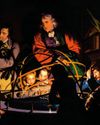
A leap in the dark
The primal play of light and shadow, whether in Leonardo's ever-so-subtle sfumato or Caravaggio's dramatic contrasts, has shaped Western art, as Michael Hall reveals

Beauty and the blimp
Inflammable airships may be gone, but a new hybrid aircraft, capable of delivering eco-friendly aviation, is set to take to the skies with a bang, finds Charles Harris
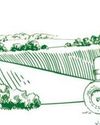
Three wishes for food and farming
Royal hedge planting, the terrible toll on Ukrainian farming and a maiden speech
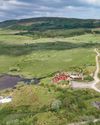
Seeing the wood for the trees
Scotland's much-evolved forestry industry has become a focus for clever investors
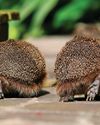
Let's fall in love
Birds do it, bees do it, even educated fleas do it. Laura Parker finds that, when it comes to creatures mating for life, persistence, patience and a little dad dancing are key to success
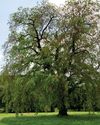
Back from the dead
THREE Wentworth elm saplings have been planted in the grounds of the Palace of Holyroodhouse, Edinburgh, and on the Highgrove estate in Gloucestershire-29 years after what was thought to be the lastknown Wentworth elm died.

A man among men
What makes a master? Beloved of the commercial art world, handled warily by art historians, the word has long been opaque. Michael Prodger investigates its many meanings-and discovers that being male confers an unfair advantage
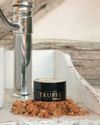
Unearth one of life's luxuries
Black diamonds are a girl's best friend this Valentine's Day, with Périgord truffle-based skincare from TRUFFE

Adventure awaits
Spend an unforgettable family holiday on the Benmore Estate and experience some of Scotland's finest wildlife and sporting activities

Let the art rule the head
Despite being a world leader in everything from jewellery to fashion and music, the UK is failing to nurture creativity at school and in regional centres. Tristram Hunt, director of the V&A Museum, calls for an urgent review